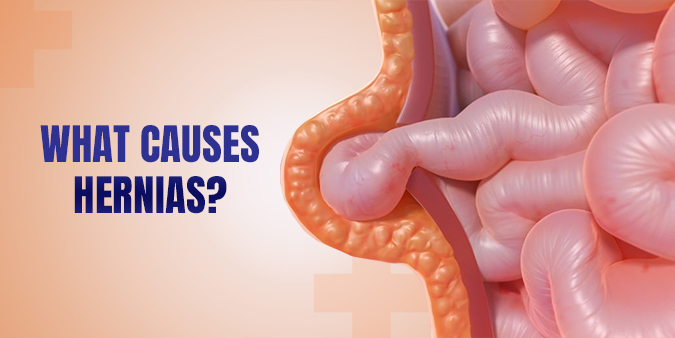
What Causes Hernias? Key Factors You Should Know
Tuesday, 28th May 2024Hernias occur when an organ or tissue pushes through a weak spot in the muscle or connective tissue that surrounds it. They can be painful and may require surgical intervention to correct. Understanding the causes of hernias can help in prevention and early diagnosis. This article explores the key factors that contribute to the development of hernias.
What is a Hernia?
A hernia is a medical condition where an internal part of the body bulges through a weakness in the surrounding muscle or tissue wall. Common types of hernias include:
-
Inguinal Hernia: Occurs in the groin area and is more common in men.
- Hiatal Hernia: Occurs when part of the stomach pushes through the diaphragm into the chest cavity.
- Umbilical Hernia: Occurs around the belly button and is common in infants.
- Incisional Hernia: Occurs at the site of a previous surgical incision.
Key Factors That Cause Hernias
Weakness in the Abdominal Wall
A primary cause of hernias is a weakness in the abdominal wall. This weakness can be present at birth (congenital) or develop over time due to factors such as aging, injury, or previous surgery. Areas where the abdominal wall is naturally thinner are more prone to hernias.
Straining and Heavy Lifting
Straining and heavy lifting can increase the pressure inside the abdomen, leading to a hernia. Activities such as lifting heavy objects, intense coughing, or straining during bowel movements can contribute to this increased pressure.
Chronic Coughing
Chronic coughing, often associated with conditions such as chronic obstructive pulmonary disease (COPD) or persistent bronchitis, can put repeated strain on the abdominal wall, increasing the risk of hernias.
Obesity
Obesity is a significant risk factor for hernias. Excess body weight increases the pressure on the abdominal wall, making it more likely to weaken and develop a hernia.
Pregnancy
Pregnancy can cause the abdominal muscles to stretch and weaken, especially during multiple pregnancies or with significant weight gain. This increased pressure can lead to the development of hernias.
Constipation
Chronic constipation and the resulting straining during bowel movements can put extra pressure on the abdominal wall, increasing the risk of hernias.
Previous Surgery
Previous surgery can create a weak spot in the abdominal wall where a hernia can develop. Incisional hernias are common at the site of surgical incisions, particularly if the wound does not heal properly.
Aging
As we age, the muscles and tissues weaken, making it more likely for hernias to develop. Age-related wear and tear can lead to reduced muscle strength and elasticity.
Family History
A family history of hernias can increase your risk. Genetic factors may influence the strength and integrity of the abdominal wall.
Prevention Tips for Hernias
While some risk factors for hernias, such as age and family history, cannot be changed, there are steps you can take to reduce your risk:
Maintain a Healthy Weight
Maintaining a healthy weight through a balanced diet and regular exercise can reduce the pressure on your abdominal wall and lower your risk of hernias.
Practice Proper Lifting Techniques
When lifting heavy objects, use proper lifting techniques: bend at the knees, keep your back straight, and lift with your legs, not your back.
Avoid Straining
Avoid straining during bowel movements by eating a high-fiber diet, staying hydrated, and using stool softeners if necessary.
Quit Smoking
Quitting smoking can reduce the risk of chronic coughing and improve overall muscle health, lowering your risk of hernias.
Strengthen Abdominal Muscles
Engage in exercises that strengthen the abdominal muscles to support the abdominal wall and reduce the risk of hernias.
Treat Persistent Coughs
Seek medical treatment for persistent coughs to reduce the strain on your abdominal wall.
Monitor and Manage Health Conditions
Properly manage health conditions that can increase your risk of hernias, such as obesity, chronic constipation, and respiratory illnesses.
Conclusion
Hernias can cause significant discomfort and may require surgical intervention to correct. By understanding the key factors that contribute to their development, you can take proactive steps to reduce your risk. Maintaining a healthy weight, practicing proper lifting techniques, avoiding straining, and strengthening your abdominal muscles are essential preventive measures. If you suspect you have a hernia or are at risk, consult with your healthcare provider to discuss appropriate prevention and treatment strategies.


